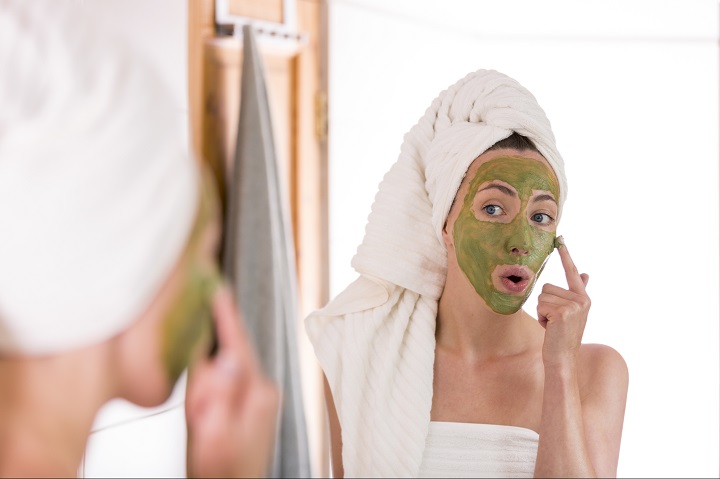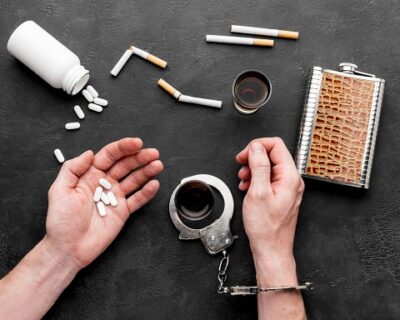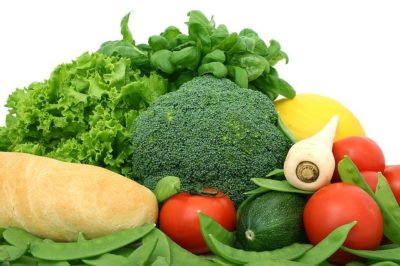A breakout occurs when a person’s pores are clogged or become infected by bacteria. More than 80% of Americans suffer from acne at some point in their lives. Acne was once thought to be a teenage problem that has somehow continued even into adulthood. Most acne patients have experienced the struggle of controlling blemishes and preventing them from returning.
The good news is that the cure for this skin condition could well be found right in your home. Many home remedies can help people make their skin look suppler, reduce inflammation, or stop acne breakouts. Most people seem to have heard about a couple of home remedies for acne that have been handed down from friends or family. For some, they may have read this information on the internet. After all, there’s a great deal of interest regarding these remedies.
But still, this question remains: Can you trust any of these acne home remedies? In some instances, you can. However, other methods are simply ineffective. You might have to deal with a few that irritate your skin, so you have to be very careful on your journey to getting acne-free skin.
Here are some natural remedies for acne that have been proven to work on many people:
1. Water Therapy
Keep your skin hydrated by drinking sufficient water every day. Skin is more prone to acne if it’s dry because it can trigger excess oil production.
Several studies have shown that greater water consumption in conjunction with an effective moisturizer or other skincare product can help maintain soft and smooth skin. Look at here now to better understand how important hydration is towards maintaining clear-looking skin.
2. Tea Tree Oil
A natural antibacterial, anti-inflammatory, and antifungal agent, tea tree oil may work to remove acne-causing bacteria. The anti-inflammatory properties of tea tree oil are also helpful in reducing the inflammation caused by pimples.
The evidence for the link between tea tree oil and acne has been examined in a 2015 study. Here, the researchers discovered that people with mild acne using tea tree oil products experienced reduced acne sores. Study results suggest that tea tree oil may work just as well as 5% benzoyl peroxide, one of the most common medications for acne. A person can buy tea tree essential oils, gels, and creams that contain the extract to treat their acne. When essential oils are used, they should be diluted first in a carrier oil.
3. Apple Cider Vinegar
There are several reasons why your skin is breaking out. And trying apple cider vinegar (ACV) can help alleviate these effects of these factors. Fermented apple cider, or juice from pressed apples, is what ACV is made of. The vinegar’s ability to kill bacteria and fungi is what makes it an everyday household staple. Here are the following acid contents in ACV that could help alleviate acne:
- Citric acid, which is found in apple cider vinegar, has been discovered to kill P. acnes, which is the bacteria that causes pimples.
- Succinic acid, another organic acid, reduces inflammation caused by P. acnes, which then saves the skin from scarring.
- Apple cider vinegar also contains lactic acid, another acid that may help remedy acne scars.
This type of vinegar has specific components that may help cleanse acne, but the evidence to support this is still inconclusive. However, using this household product should come with a precaution, as many dermatologists suggest that apple cider vinegar should not be used at all. They say that there could be possibilities that it may lead to skin irritation. There’s a risk of burns and skin irritation when applying apple cider vinegar directly to your skin. So, if you plan on using it, dilute it in water and apply only small amounts.
4. Lemon Juice
Lemon juice is popular among acne sufferers because of its astringent and exfoliating properties. Put a few drops of rose water in a bowl and squeeze a lemon into the mixture. This mixture can be applied with cotton balls to the areas on your face which are pimple-prone, like the T-zone for some people. Besides helping to stop pimples from forming, it also helps to keep your skin glowing and minimize the appearance of scars.
5. Aloe Vera
An aloe vera gel can be naturally antibacterial and anti-inflammatory, making it beneficial for treating acne breakouts and reducing their appearance. Aloe vera contains a great deal of water, and as a result, it’s incredibly moisturizing. Hence, it’s perfect for people whose skin are flaked due to strong acne removal gels.
An 8-week clinical trial conducted in 2014 examined the efficacy of aloe vera gel and tretinoin cream on patients with mild to moderate acne. Participants with inflamed acne reported significant improvements when they used aloe vera gel compared to people who only used tretinoin gel.
Put a thin layer of aloe vera-containing cream on the acne sores and let it dry. You can also look for creams or gels containing aloe vera, as they could equally be effective.
6. Green Tea
Drinking green tea can promote good health because it’s loaded with antioxidants. Another focal advantage of it is that it can reduce acne. Thanks to the polyphenols in green tea, it can help reduce acne caused by bacteria and inflammation.
It’s unclear whether drinking green tea has many benefits when it comes to acne, and more studies need to be conducted. Some studies suggest that drinking green tea reduces your risk of developing acne by lowering your blood sugar and insulin levels. There are also studies claiming that the direct application of green tea on the skin is a topical solution for acne.
People with acne-prone skin most effectively use green tea and its main active compound, epigallocatechin-3-gallate, to reduce sebum production, fight inflammation, and inhibit the growth of acne-causing bacteria.
7. Fine Grain Salt
Fine-grain salt helps to remove dead skin cells, balance moisture, and remove toxins from pores inside the skin. Once it’s absorbed, it becomes helpful in preventing breakouts. Taking a pinch of sea salt and rub it gently over your face or body. This will have you feeling refreshed and rejuvenated. You may rinse it immediately or leave it on for just a few minutes. It’s too abrasive if you scrub it too hard, so try to avoid doing so.
Conclusion
Many acne home remedies do not significantly affect your skin unless you only get an occasional minor pimple. They can assist your regimen, but the basis for clear skin should be far more customized and based on vital medication, especially if your acne case is more severe.
Medications prescribed by a dermatologist may work best for you. Before you try out any of the home remedies presented above, see a dermatologist and ask their opinions if these are safe to use on your skin.










